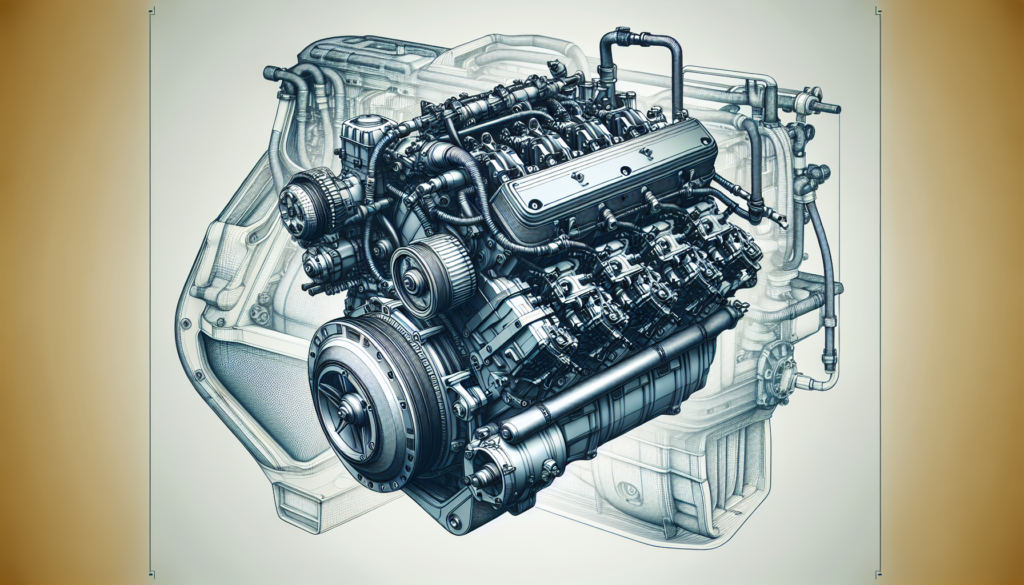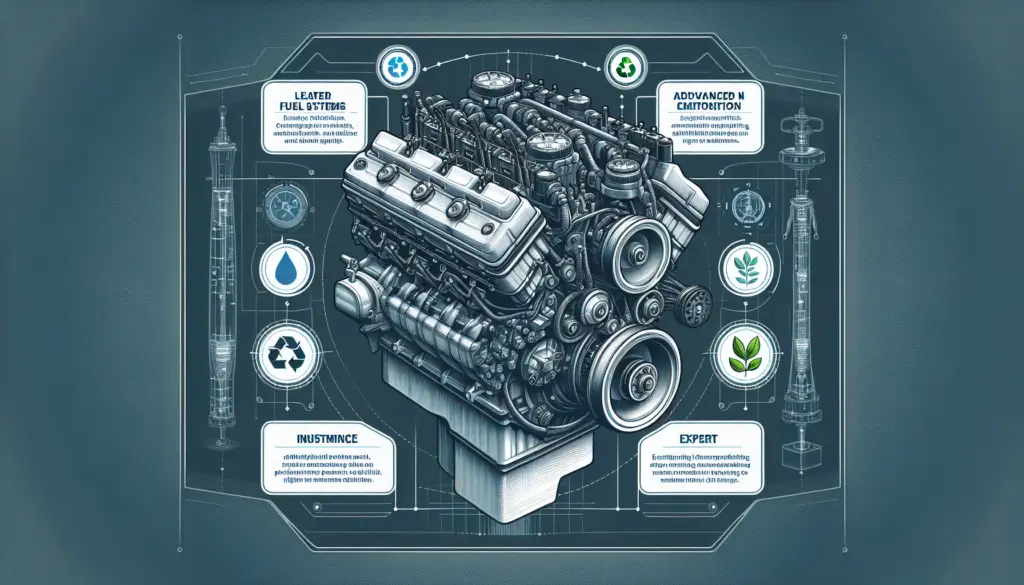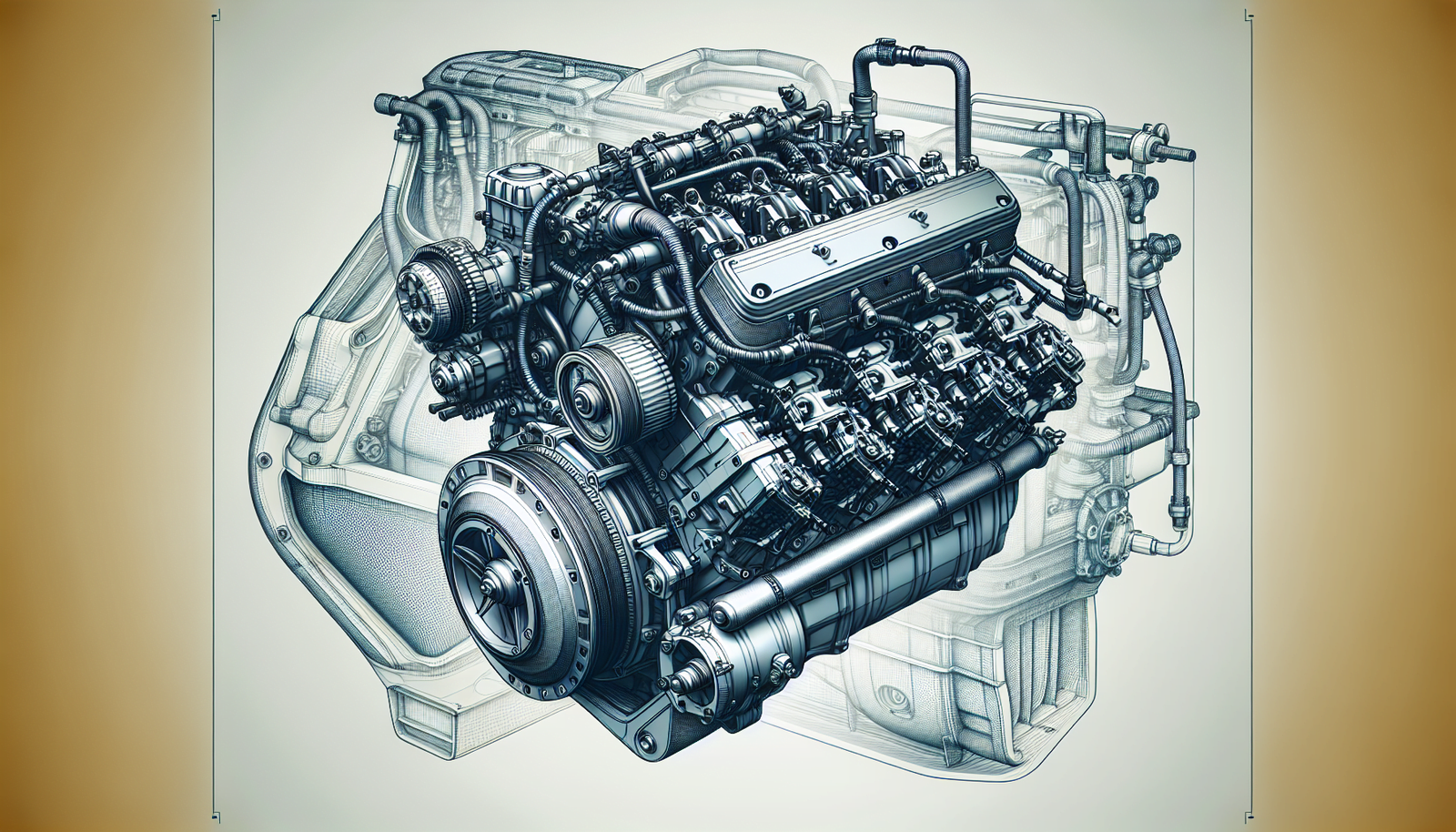As a boater, you understand the importance of environmental stewardship. In the article “Expert Tips For Boat Engine Emissions Control,” you will gain valuable insights into how to manage and reduce your boat’s engine emissions effectively. This pivotal guide offers professional advice and practical techniques designed to help you lessen your aquatic vehicle’s environmental impact. From proper engine maintenance to cutting-edge emissions control technologies, equip yourself with the knowledge necessary to navigate towards a greener boating experience.

Understanding Boat Engine Emissions
Let’s start by understanding what boat engine emissions are. Just like cars, boats also release unwanted gases and particulates into the environment. This happens when the fuel used to power the engine undergoes combustion.
Common types of pollutants in boat engine emissions
The most common types of pollutants you’ll find in boat engine emissions include nitrogen oxides (NOx), particulate matter (PM), sulfur oxides (SOx), and volatile organic compounds (VOCs). These pollutants are harmful to both the environment and to human health.
The impact of boat engine emissions on the environment
Now, you might be wondering how severe the impact of these boat engine emissions is on the environment. Well, the pollutants released can cause several environmental problems such as water pollution, air pollution, and contribution to global warming. They can negatively affect marine life, disrupt natural ecosystems, and lead to deterioration of air and water quality.
Maritime regulatory standards for boat engine emissions
Maritime regulatory standards, such as those set by the International Maritime Organization (IMO), are in place to control the amount and type of emissions released by boats. These regulations are essential to minimize environmental damage and protect public health.
Importance of Emissions Control
But why is emission control so important?
Benefits of reducing boat engine emissions
Reducing boat engine emissions can have several benefits. It promotes healthier marine life, better water quality, and a cleaner, healthier environment to enjoy. It also reduces your contribution to global warming.
Necessity of complying with maritime emissions regulations
Complying with maritime emissions regulations isn’t just a good deed, it’s necessary. These regulations are in place to protect the environment and public health. Compliance ensures that these standards are upheld, making the waterways safer and cleaner for everyone.
Consequences of non-compliance with emission standards
Non-compliance with emission standards can lead to penalties and fines. Moreover, it can also lead to irreversible environmental damage and health issues for people living near water bodies.
Types of Boat Engines and Their Emissions
Boat engines aren’t built the same. They come in different types, each with unique emission characteristics.
Differences in emissions between outboard and inboard engines
Outboard engines, which are mounted outside the boat, typically emit fewer pollutants than inboard engines that are installed inside the hull. However, both types still contribute to boat emissions.
Comparison of gas-powered and diesel boat engine emissions
When it comes to engine types, gas-powered engines tend to emit higher levels of CO2, whereas diesel engines typically produce higher levels of NOx and particulate matter.
Emissions characteristics of electric and hybrid boat engines
Electric and hybrid boat engines are gaining popularity due to their low-emission profiles. These types of engines produce zero or significantly fewer emissions compared to their gasoline and diesel counterparts. However, the emissions from the production and disposal of their batteries need to be considered too.

Techniques for Reducing Boat Engine Emissions
Thankfully, there are several methods you can use to help reduce your boat’s engine emissions.
Use of fuel additives to improve combustion
Fuel additives can help improve fuel combustion which can reduce the amount of emissions your boat engine releases. These substances can also boost your engine’s performance and efficiency.
Maintenance practices for reducing emissions
Regular maintenance is essential for keeping your engine running efficiently and reducing emissions. This could include regular oil changes, cleaning the fuel system, and ensuring the engine’s air filter is clean and performing well.
Operational changes for improved engine efficiency
Another way to reduce emissions is by making operational changes. This includes operating at optimal speeds, avoiding unnecessary idling, and ensuring your engine is properly tuned and working efficiently.
Emissions Control Systems in Boats
Modern boats are now equipped with various emission control systems to help combat pollution.
Role of exhaust after-treatment systems
Exhaust after-treatment systems are designed to reduce harmful emissions before they are released into the environment. These systems treat the exhaust gases, converting harmful pollutants into less harmful substances.
Understanding and maintaining catalytic converters
Catalytic converters are a part of the exhaust after-treatment systems. It can convert harmful gases into less harmful substances. They, however, require regular maintenance to keep them working effectively.
The impact of particulate filters on boat engine emissions
Similarly, particulate filters help to trap harmful particulate matter from the engine’s exhaust, reducing the amount of particulate emissions released into the environment.
Fuel Selection and its Impact on Emissions
What type of fuel you use also plays a central role in your boat’s emissions profile.
Benefits of using high-quality fuels
High-quality fuels often lead to cleaner and more efficient combustion, thereby reducing the amount of pollutants emitted by your boat’s engine.
Emissions characteristics of biofuels for boats
Biofuels are a more environmentally friendly alternative to traditional fuels. They generate fewer emissions and are renewable. However, they are often slightly more expensive and not as readily available as traditional fuels.
Impact of alternative fuels on boat engine emissions
Alternative fuels, such as hydrogen and electricity, offer even lower emissions compared to traditional and biofuels. However, the availability of these alternative fuels and the infrastructure to use them in marine applications are still under development.
Emerging Technologies in Emissions Control
Emerging technologies aim to further reduce boat engine emissions and their environmental impact.
Advancements in engine design for emissions reduction
New engine designs are focused on improving fuel efficiency, reducing emissions, and enhancing overall performance. These advancements include direct fuel injection systems, supercharging, and improvements in air induction systems.
Innovations in exhaust after-treatment systems
Innovations in exhaust after-treatment systems are also contributing significantly to reducing boat engine emissions. These include advancements in catalytic converters and particulate filters, as well as the development of new after-treatment systems.
Future trends in boat engine emissions control
In the future, we can look forward to even more advanced technology and strategies to control boat engine emissions. This could include widespread adoption of electric and hybrid engines, increased use of alternative and renewable fuels, and new regulatory standards.
Maintenance Practices for Lower Emissions
Responsible maintenance practices can significantly reduce your boat’s emissions.
Regular engine check-up
Getting regular engine check-ups can help ensure that your engine is running efficiently and minimize emissions.
Proper care of the emissions control system
Proper care and maintenance of your boat’s emissions control system will also play a big part in reducing its emissions. This might include regular check-ups and replacements, as necessary.
Workshops and training for boat owners and operators
Workshops and training can help boat owners and operators learn more about maintaining their engines and reducing emissions. These programs can provide valuable insights into efficient boating practices.
Environmentally-Friendly Boating Practices
Not only is it about the boat and its engine but also about your boating habits.
Sustainable boating behaviors
Sustainable boating behaviors can make a significant difference in reducing your boat’s emissions. This includes reducing boat speed, minimizing idling times, and limiting boat usage.
Ecologically responsible disposal of boat-related waste
Proper disposal of boat-related waste, such as used oil and old batteries, is also critical in preventing environmental damage.
Participation in emissions reduction programs and initiatives
Joining emissions reduction programs and initiatives can help further decrease your environmental impact. These programs often provide invaluable tips, resources, and support in reducing emissions.
Evaluating Emissions Performance of Boat Engines
Once you’ve implemented all these methods to reduce boat engine emissions, it’s important to regularly evaluate your boat’s performance.
Understanding marine engine certifications for emissions
Understanding marine engine certifications for emissions can help you make informed decisions about the types of engines and fuels to use for your boat.
Frequency and methods for emissions testing
Regular emissions testing can help you understand how effectively you’re reducing your emissions. You should follow the specified frequency and methods for these tests.
Interpreting the outcomes of emissions testing
Interpreting the outcomes of emissions testing can give you an idea of where improvements may be needed. It can also help you understand if you’re complying with regulatory standards.
Boat engine emissions are a significant contributor to environmental pollution, but with the right knowledge, practices, and technologies, we can significantly reduce the environmental impact. Let’s work together to make our waterways cleaner and safer, and the boating experience more enjoyable for everyone.

